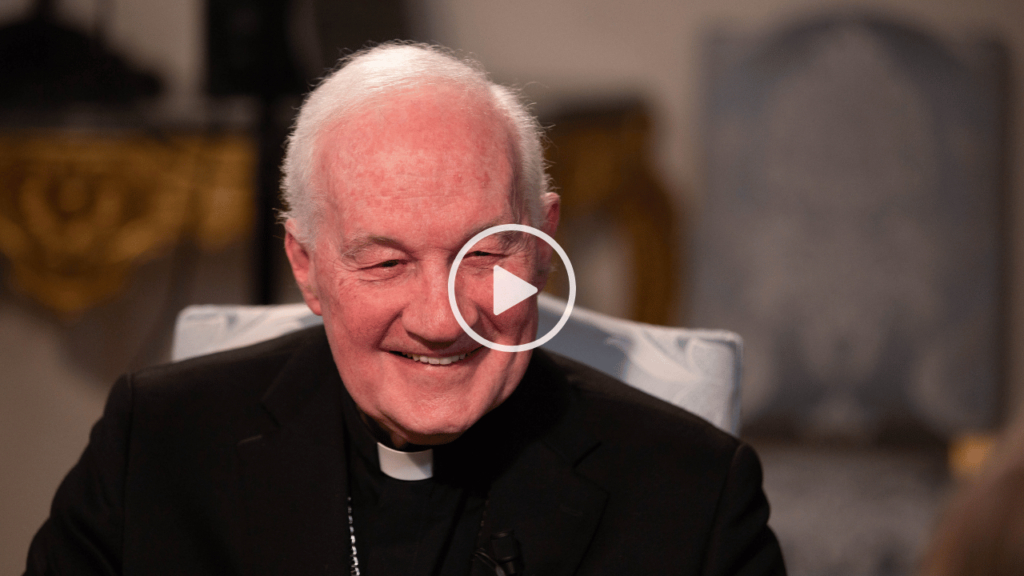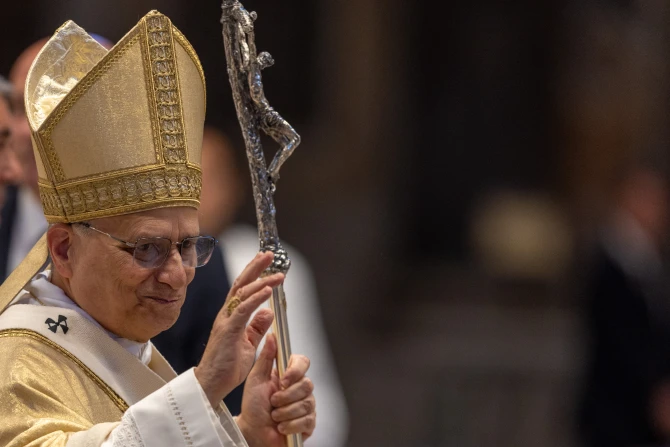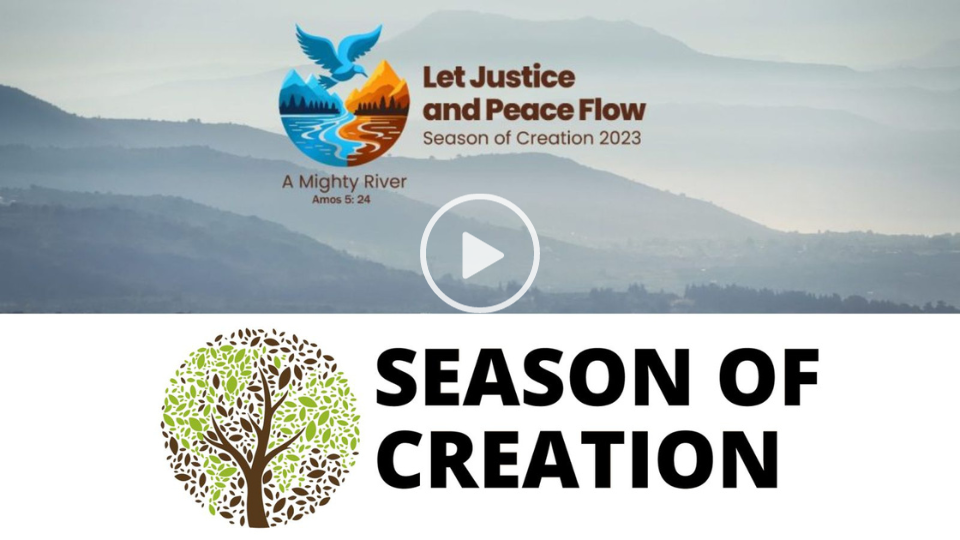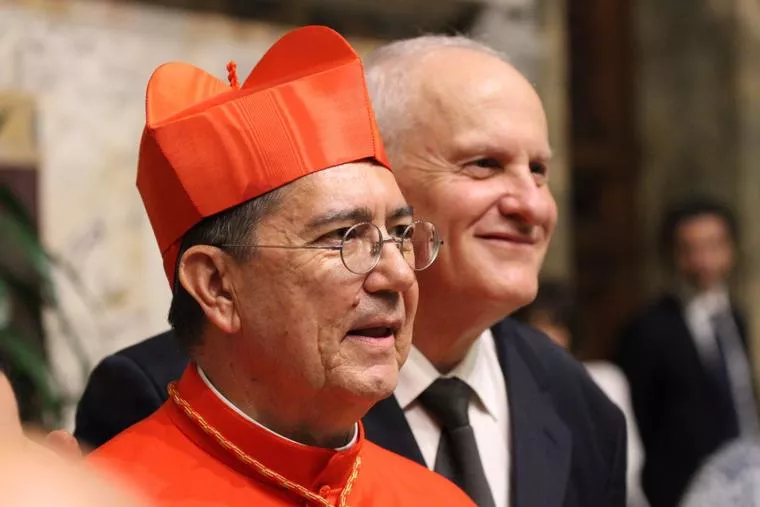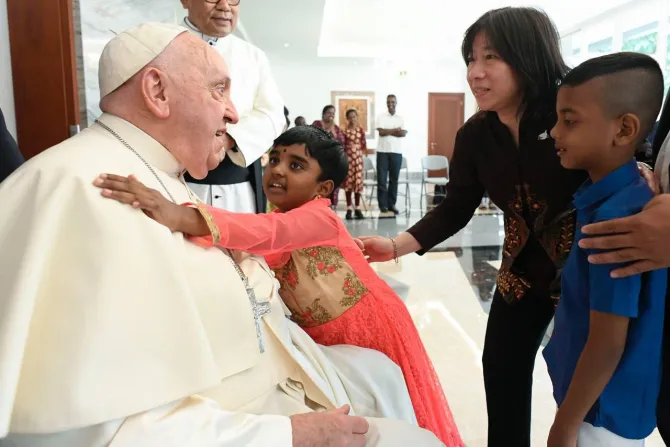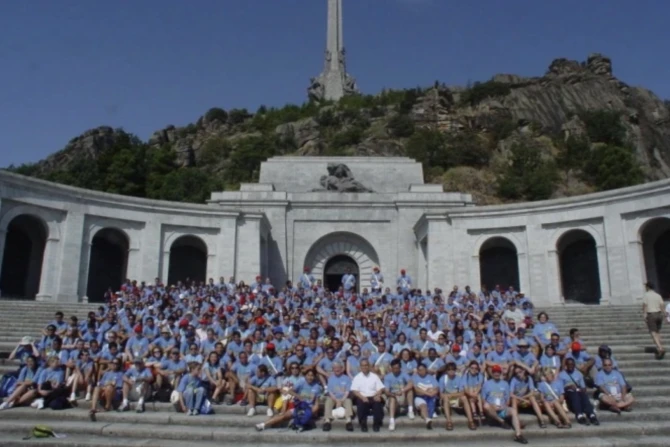Cardinal Marc Ouellet, Prefect of the Vatican’s Dicastery for Bishops, recently shared his thoughts on the legacy of Pope Francis as the tenth anniversary of his papacy approaches. According to Cardinal Ouellet, Pope Francis’ pastoral style has significantly impacted the Church, reaching the hearts of the people of God and stirring hope and interest not only within the Church but also outside its walls. He praised the pope’s initiatives for the poor and his ambition for interreligious dialogue, including the declaration of Abu Dhabi, which is essential for world peace. Cardinal Ouellet also acknowledged the pope’s extensive travels, which he used as an opportunity to speak to journalists and share his thoughts on current events. As the head of the Dicastery for Bishops, Cardinal Ouellet spoke about the criteria for choosing bishops, emphasizing the importance of pastoral bishops who are witnesses of the Risen One and men of communion. The final decision on the appointment of bishops is made by the pope, but the Dicastery for Bishops plays a critical role in discernment.
We’re here in the Dicastery for Bishops; with us is Cardinal Ouellet, the prefect of this dicastery. Your Eminence, thank you so much for taking the time to be with us.
Thank you for inviting me.
We know that the 10th anniversary of Pope Francis is coming up. So what will be most remembered from these first ten years?
So, I think his pastoral style has significantly impacted the Church. His way of multiplying communication, he has been giving interviews to journalists — you had never seen that before, in such a way, and in a very spontaneous way. And also, he has been doing interviews for books and looking for all the occasions to speak to the people and be present among them. And that’s his pastoral style. And I think it has reached the heart of the people of God. He has stirred hope, a new hope, and interest for the Church, and the interest not only within the Church, but I would also say, better outside the Church, outside the walls. And that’s the sign of his missionary style: a missionary is at the borders. He is looking for those who are far away. And he is reaching out to them in some way. I’ve seen that many times in encounters and dialogues, in all circumstances, people saying, ‘your pope, but it’s not too bad, your pope.’ And they weren’t. They didn’t know the Church but were interested in it because of the pope’s style.
He had a considerable impact, also, in his initiatives: for the poor, his ambition for interreligious dialogue. The declaration of Abu Dhabi is so vital for peace in the world. It is not easy to deal with the Muslim Islamic community. It is not easy, and there is a real need for encounter, for a better understanding of dialogue, in a word. He has been [making] many efforts in that direction. And also the level of geopolitics he is a reference for. From the beginning, he has been very active and received so many chiefs of state. I think he’s been listening to, and, even in the last war, the one that you have in Europe at this time, he’s been saying something every day, three times a day, to call for peace, to invite to dialogue, to look for a different solution. These are examples of the impact of this pastor on the world and the Church.
Maybe also his travels? You know, he’s been traveling quite extensively.
Yes, exactly. And the travels were also occasions for doing his conference with journalists. It was an occasion to say something about the actuality of what is happening in the Church and the world. And this is a way of being a spiritual leader. The world needs a spiritual leader, a father, in some way. And he has the figure of a father: Close to the people, merciful, compassionate. This is part of his identity. And his eagerness to communicate, to communicate to bring the joy of the Gospel. That is characteristic of him.
And you’ve been responsible for this Dicastery for Bishops, first the Congregation for Bishops, for many years; you’re concluding your turn now. How in all those years, would you say, have bishops been chosen? How has that changed? Or has it changed? Or we’ve seen many new appointments also in the past years. Please tell us more about that.
Yes, the style of the pope has had an impact on the way we choose bishops. It is a message from the Holy Spirit. The Holy Spirit has guided the election of this man, this pastor, and after a great doctor of the Church, like Benedict, and a great evangelizer, John Paul II, you needed a man that is close to the people and helps people to walk the way of following Christ, and to be accompanied and to be understood, with a merciful heart. That’s what the Church needed at the time. And so he has brought this message, this testimony, and the bishop’s choice. Also, the criteria to choose the bishops: so people that are witnesses of the Risen One, and not just people that would be good administrators, but witnesses of Christ, the Risen Christ. So, full of life, able to evangelize, and also men of communion — not only of discipline but of communion — able to listen to the people, their priests, and their confreres in the episcopal conference. So, we’ve been choosing bishops, mostly pastoral bishops, but it depends. In some other contexts, sometimes, according to the needs, local needs, we’ve been choosing people with good canonical preparation and good theology. But it depends on the context, and it is a discernment that is done precisely after the study of the place we have to provide after the analysis of the “terna.” We see the qualities and the limits, and we bring the Holy Father the recommendation of the plenary.
As you know, we have more than 30 people doing a plenary meeting every two weeks, on Thursday. And then, we study about 12 or 15 candidates for a diocese or auxiliary bishops. It is an excellent task. But the final decision is from the pope. But when the plenary is unanimous, it is easier for the pope to make the decision. When it is divided, my role is more complicated. I have to report to him and tell him exactly the position of the members. That is a critical discernment.
Speaking of different contexts, you have experience, both here in the Vatican and back in North America and South America, firsthand knowledge there. How would you describe the, let’s say, the Transatlantic relationships between bishops in those continents and the Vatican?
Yeah, it is an interesting question. I’ll start with Latin America, if you allow me because we’ve been working with the CELAM, the Conference of Bishops of Latin America, that is a long history. They’ve been working very well in the direction of the Holy Father since 2007. The last big meeting of the bishops. The Evangelii Gaudium, the program of Pope Francis, was taken practically from this document [Note: he likely means the Aparecida Document] and improved and completed. The pope said that several times. There was a normal affinity.
With the episcopate in North America — that is, Canada and the United States — the relationships are more complex. In 2018, it was a challenging year, for me in particular, because we had a big abuse crisis, and they had to reshape their normativity, and so on. That was, but they did well. They did well. And on the question of immigration, for example, is a delicate matter. Because of all the caravans coming from Central America through Mexico to the States, it is a very complex question. But I’ve seen the bishops acting quite well, with Christian hearts of compassion for those dying on the road. So other matters were more complex because we know that society in America is very, very divided, politically divided. And it has an impact, obviously, on the Church and the bishops. It is a complex question, the adaptation: How will you handle the political questions with the moral question that they are in touch with? This is a big challenge for the Church and the bishops in the States.
Let’s stay on that, on the issue of Latin America. Because, of course, you also serve on the Pontifical Commission for Latin America. And you have tremendous insights there. We have an American-Latin pope as well. How would you say has that impacted our Church in general?
Yes. Thank you for the questionâthe continent where the gap and the divide between rich and poor are most remarkable is Latin America. The pope has come to the See of Peter with the poor in his heart. And he has put the poor at the center of the Church. This is a contribution of Latin America and a response and a call, a call to mission. I say that because if the pope brings the poor at the center of the Church, that means it is a provocation for our charity, our solidarity, our compassion, and our social doctrine to transform the economy of the world so that it could serve the poor, and not just enrich the rich.
This is the main contribution of Pope Francis from Latin America, his sensitivity to the poor because of the suffering of the poor in Latin America. It is a lesson for the whole world: If you put the center on the poor, you put everybody on a mission because a mission begins with love, with charity. Otherwise, your word has no impact if your gesture does not accompany it. And that’s a characteristic of Pope Francis.
He says something, and he makes a gesture. He has invited the poor to the hall of Paul VI every year at Christmas time. And so many other things that you can think of. And I think this is an excellent message for the Church. That’s part of his originality and of his provocation. He is prophetic. In that sense, he is prophetic, telling us we cannot be indifferent to the world’s poverty situation. And even in Latin America, the governments, the right or the left, have left the poor where they are, and so the pope, in that sense, is critical of governance because there are no actual means to transform the situation of the poor.
I am changing the topic a little bit. During your time here at the Vatican, you haven’t shied away from some of the significant issues, including, I know, you wrote a book on priestly celibacy. We also mentioned the 2018 abuse crisis, talking about priestly formation and how it might improve. Why have you chosen to address those sometimes hot-button topics?
So, the story, I would say, is when we started the Synod on Amazonia, and they were talking about ordaining “viri probati” So, I told the question of celibacy deserves treatment is severe treatment in the Church. That’s why I published a book. And because I think that it is an extraordinary gift of God to the Church, the gift of celibacy for priests, and the gift of celibacy, also in the religious life and consecrated life. It’s so important for evangelization. Why? Because it is a witness to the identity of Jesus: Who is Jesus? Sometimes my impression from what we hear, and what we hear in the media, or from even ecclesiastical [people], is ‘celibacy, that’s just a question of the discipline of the Church.’ We have to think of celibacy from the bishop, from the position and the ministry of the bishop. And all bishops, from the beginning, from the apostles, were chosen, and Jesus asked them to leave everything, even family, and to follow him, leaving everything. And they did that. And they did that. Why? Because they acknowledged who this man was, he was not just a more prominent prophet, he was the Son of God, the Son of God, and the Risen One, and so he can require this condition to follow him as also a witness of love, of availability for the mission. I think this is an excellent gift to the Catholic Church, it has been kept over the centuries, and I hope it will stay. I will tell you something more: last year, I organized a center of research on vocation, a symposium here and at the Vatican. The pope gave the longest speech of his pontificate. And during this speech, he repeated that he would not change the discipline of celibacy for the priest, that it is a treasure for the Church, and that he will not change that.
I am in good company in my position. And I think we have to affirm that today because the pressure of the culture is a sort of non-acceptance of celibacy and saying that it is the cause of other abuse and so on. The abusers we know that there are abusers everywhere. First of all, in the families, you have more abuse in the family than in any other place. This is a delicate question. But I think the Church has a treasure to relate, keep, develop, and put at the service of evangelization.
This topic has also been a topic in the German Synodal Path. And I know that you’ve already answered those questions there. But we can come to a broader process. The global process centered on synodality. But also the bishops are, of course, also at the core of this process. How do you see it? I know that you’re following this very closely. And the process is underway. In October, we’ll also have the first synod here in Rome. But can you tell us about it?
Yes. The legacy of Pope Francis’s synodality will likely remain the most important of his contributions. The Catholic Church, I would say, is very clerical. It’s very grounded on the ordained ministry at the center of the attention: the bishops and the priest. But we need more awareness of the priesthood of the baptized. This is gone to the Protestants. We [have] the division between Protestantism and Catholicism, we remain with the ordained ministry, and they stay with the baptismal priesthood. We need to come together and put… that was precisely the purpose of this symposium, to see the two participants in the unique priesthood of Christ — the baptized and the ordained ministry — to see the relationship between both. This is a contribution that has to be added to the process of synodality, to this extensive consultation, a world consultation on synodality, that it is listening to the Holy Spirit given to the faithful, to the lay faithful, and everybody. Some charisms’ gifts need to be acknowledged more by the hierarchy, priests in parishes, and so on. Listening to the people of God, to their faith, to realize how much interest they have in this participation is excellent news for the Church. It’s good news also for the priests in every parish and the bishops in the diocese because it will stir more contribution, participation, and empowerment of people, and women in particular, in the life of the Church. Synodality is a crucial factor for the future.
What you have are some exaggeration and some success. If you look at the plenary Council of Australia, you have a lovely experience of synodality. They’ve been preparing that for years, and they have made an excellent set of recommendations for the future of the Church in Australia. And so, the German bishops started before the whole universal process. They began with a group of rules that were not so ideal, outside the canonical order of the Church. And so that was risky.
And to some extent, the results also could be happier. But now, there is a move to re-integrate the world process of synodality. And I think I am confident that with the dialogue that we’ve been developing with them, they will adjust, and they will bring their contribution, but also with a sense of listening to the rest of the Church and maybe adjusting their positions. That’s my hope, and that’s my part of the debate with them. But I am confident that we will go forward.
You had a chance to serve the Vatican under three different popes. What will you take with you as you move on from this role?
I have an enormous debt of gratitude that comes with all these popes, starting with St. Paul VI, who ordained me a priest in May ’68. That was a long time ago. And John Paul II, so 26 years [ago], he called me to teach at the John Paul Institute in Rome. That was a good relationship. I admired his energy to evangelize and his testimony of suffering. He was a great man for offering his life and being at the foot of the cross with the Virgin Mary. I admired his last years, which were a cumbersome burden. But he gave a great witness to the Church. And also, Benedict, as I said before, he is a doctor of the Church. We have a legacy of doctrine and reflection and of a theologian, which will last for centuries. Ratzinger is a name that will last for centuries for his contribution to theology and the Church. He did not have the charism of Francis — the pastoral contact with people and giving enthusiasm to people — that was not his charism. The lesson from this experience is that the Church is rich in resources. And the Petrine ministry, in particular, is very adaptable.
Yeah, we had such different popes, much further. And that’s in the continuity of the work of the Holy Spirit in history. He brings us the right man at the right moment. And that doesn’t mean that they are infallible in everything they do- all with limits and mistakes- but they are men guided by the Holy Spirit. I’ve seen that in Pope Francis. Every week, for an hour with him, we’ve been addressing many questions and appointments. I’ve seen him react as a man of God that is listening to the Spirit, having his signs to discern precisely the motion of the Spirit, of the good Spirit, and a man that is also able to withdraw when he thinks, ‘I went too far. I had a sort of impulsive move.’ He can correct himself. I’ve had some examples I will not give you [laughs]. But, a man of God, a man that follows the Spirit. That’s my experience of him.
Now, you will soon move on from this role. What will you be doing next?
Okay, I told you about this symposium. If we want synodality to be a success and a positive development, we need to raise awareness of the priestly dimension of the baptized and the priest. That the priestly vocation of ordained ministry is at the service of the priesthood, and that priesthood means mediation. The priests bring the Gospel and the sacraments to the people so that they become mediators of faith, love, and hope for the world where they live. That’s the priesthood of the baptized.
To bring hope and love to society, we need so much peace, reconciliation, and so on. That’s our task as Christians, but we need to be nurtured to be helped to do that. And that’s the role of priests: to form consciences, to guide them, to give them energy, to give them the courage to bear witness to the risen Lord. I will be doing some promotion of the books. We have two books as the acts of this symposium, and these books are an update of priests of priesthood today, 60 years after the Second Vatican Council. It’s a book. It is a reference that will serve for the formation of priests, the formation of laity and religious, and the permanent formation of priests. And so I will do a promotion. I plan for the rest of this year to go around the world: Washington in May, May the 16th, Paris in April, and Madrid in March, so that will be my occupation. I have no problem with my future.
For the end, another personal question. What are you personally looking for when you help prepare candidates who may be appointed as bishops? What are the character traits? Or maybe the skills or talents you’re looking for in people to become a bishop?
Yes. Yeah, I told you something before. But a man that has to be the leader of a Church, of a local Church, he has to have a solid doctrine and a very vivid, existential faith. That means he can discern the presence of the Spirit in people, discern charism, and bring people together. To stir, I would say, ‘confiance,’ in French we say ‘confiance,’ trust he would, he would inspire confidence in people, and he will bring the Word of God. I mean, the good news. That’s what the world needs. And a man of communion is not a sort of hero or a cultural warrior. No, a man of the Gospel and the people, closeness to people, and a sense of a heart, a fatherly heart. That is, like, a good father of a family. He feels love for his children. That’s the same thing we must find in the bishop’s and priest’s hearts.
Thank you so much, Your Eminence, for your time with us.
Thank you. Thank you very much, too, for your questions. I hope I have given you some useful things for other people.
This interview was conducted by Hannah Brockhaus and Andreas Thonhauser.

